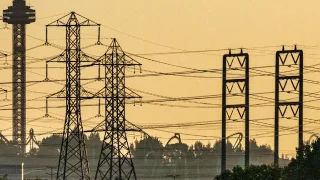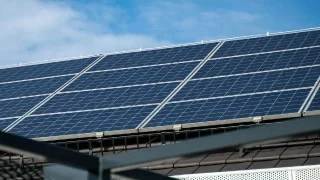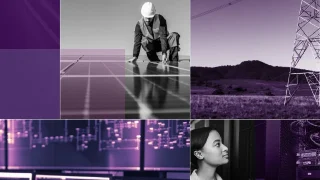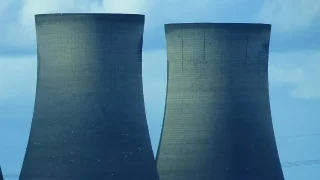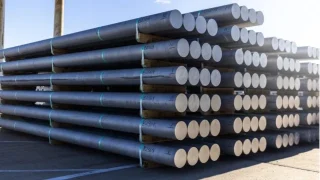
On behalf of the Centre for Independent Studies (CIS), we are pleased to provide the attached submission to the Senate Select Committee Inquiry into Information Integrity on Climate Change and Energy.
The CIS is a leading independent public policy think tank in Australia. It has been a strong advocate for free markets and limited government for more almost 50 years. The CIS is independent and non-partisan in both its funding and research, does no commissioned research nor takes any government money to support its public policy work. It is research-based and is wholly engaged in the competition of ideas which is a fundamental feature of a free society. All our work is publicly accessible to anyone who wants it and is available at or or little cost.
The CIS wishes to provide some brief comments in relation to the matters before the committee and, in particular, seeks to clarify some accusations that have been made publicly about the funding and motivations of the work of the CIS.
Our submission addresses two key aspects of the Terms of Reference. First, under point (d), we correct misconceptions that have arisen regarding the funding and independence of the CIS, particularly claims of undue influence from international networks. We emphasise our independence in research and analysis, and the safeguards that ensure donors have no role in determining the direction or content of our work.
Second, under point (f), we set out our concerns regarding the broader framing of misinformation and disinformation. We caution against the risk of conflating contested opinions with harmful falsehoods and highlight the dangers of regulatory overreach that could undermine free debate and democratic participation.
We thank the committee for the opportunity to contribute to this inquiry.
Yours sincerely,
Michael Stutchbury Simon Cowan
Executive Director Research Director
Centre for Independent Studies Centre for Independent Studies
Submission to the Senate Inquiry on Information Integrity on Climate Change and Energy
(d) connections between Australian organisations and international think tank and influence networks associated with the dissemination of misinformation and disinformation related to matters of public policy.
Funding and the Atlas conspiracy
The CIS, particularly noting point (d) on the Terms of Reference, wishes to correct some public misconceptions about our work and our funding that may be implied by that bullet point.
First, it should be noted that the CIS does not publicly identify its funders. We are not the only the only private, not-for-profit institution that declines to disclose its funding; there are examples on both sides of public debates.
There are several good reasons for this, including:
• the likelihood that critics of our work will trawl through our list of funders seeking to impugn our motives rather than answer our analysis; and
• the prospect that those funders will be publicly identified and pressured to rescind or reconsider their funding based on real or perceived controversies over our policy work.
Indeed, this very inquiry is evidence that this risk is real and must be taken seriously.
Consequently, although this committee has the power to compel organisations to appear and/or force them to disclose the identity and quantity of their funders, in our view this would be a grave misuse of the power of the Senate to do so.
The CIS does not involve itself in the electoral process. We do not recommend voting for or against particular parties or individuals. Individuals at the CIS may have political affiliations — and past CIS employees have been aligned with both major parties and several minor ones — but the organisation as a whole does not.
Whatever arguments can be made for or against transparency of donations in politics do not, and we submit should not, apply to public policy institutions like think tanks unless they are also involved in electoral politics.
Without limiting the former, we wish to correct a claim that has been made by Dr Jeremy Walker and others: that CIS policy work is being conducted under the direction and funding of the Atlas Network in America.
This is categorically untrue.
The CIS connection to Atlas is one of a shared belief in the power of classical liberal ideas: smaller government, free markets, property rights, and greater personal autonomy and responsibility. The CIS is an independent institution. CIS was established several years before the Atlas Network was founded in 1981.
Having checked our records, which extend back to 2008, we have recorded no donations received from Atlas in that time, and less than $1,500 in event bookings. To the extent that Atlas has provided assistance to the CIS outside of donations and event bookings it has been in the form of reimbursement for expenses to attend Atlas events in the US and throughout Asia.
These events are usually aimed at assisting smaller, less-established think tanks, especially in developing countries, with the operational side of running an ideas-based not-for-profit and helping their key staff meet each other and share ideas. It’s mostly a very practical advice get-together. CIS attendance at these events has usually been years apart.
The CIS has no day-to-day contact with anyone from Atlas. Atlas has no connection with the content of the research of the CIS. It has no say over the areas we work in, and it has no input into the positions we take on any matter, including energy research.
To be abundantly clear, Atlas does not provide any funding or direction whatsoever in relation to the content or direction of CIS research and recommendations on any climate matter. And it has never done so.
We also reject the characterisation of Atlas as the centre of a malign conspiracy.
CIS independence is not limited to Atlas. Some people and institutions provide general funding for the work of the CIS. Others, particularly foundations, provide support for particular programs and areas of work. Regardless of the nature of the funding, those providing financial support to the CIS have no say in the conduct and content of the research.
The CIS, through its Executive Director and Research Director, retain absolute editorial control over all written works published by the CIS, and this is a requirement in all our funding agreements. This includes all work published by the energy team.
(f) the efficacy of different parliamentary and regulatory approaches in combating misinformation and disinformation, what evidence exists and where further research is required, including through gathering global evidence.
Claims of ‘misinformation and disinformation’ are a Trojan horse for censorship of opposing opinions
In addition to our concerns about the nature of some of the questions being raised in the terms of reference, our primary concern is that claims of increasing ‘misinformation’ and ‘disinformation’ represent an excuse for government to exercise greater control over the speech of individuals.
Misinformation and disinformation are not unique types of societal harm that may require intervention of parliament to address. Many of the supposed harms identified in discussions about misinformation, such as racial vilification, are already illegal under Australian law. Others are illusory.
Moreover, allowing government to set itself up as the arbiter of truth constitutes a far greater threat to democracy than the existence of Russian bot farms.
As was seen in the aftermath of the Indigenous Voice to Parliament referendum, when pushed for examples of misinformation and disinformation, many examples cited by commentators were matters of opinion or contested ideas or interpretations — with a particular focus on comparative or illustrative examples, such as references to ‘veto’ or ‘third chamber of parliament’.
For example, an article on the Guardian website published on the 12th of October 2023 under the heading “Voice referendum: factchecking the seven biggest pieces of misinformation pushed by the no side” claims the following examples are ‘misinformation’: “The voice is legally risky”, “The voice will divide the nation”, “There are no details”.
In each case, these are statements of opinion and analysis. You may disagree with them, but these disagreements should be handled with debate, not censorship.
Another heading claims this as misinformation “The voice will force treaties”, providing the justification that “Truth telling and treaty is a part of the Uluru statement from the heart but it is a completely separate process to the Voice.” Arguably this is every bit as misleading as the supposed misinformation it is combatting! The Voice was not ‘completely separate’ to the Uluru Statement. As the Uluru Statement website itself notes “The First Nations Voice is the first proposal contained within the Uluru Statement from the Heart.”
Of course, one could argue the technicalities that the referendum process is legally separate to the Uluru Statement, but this shows precisely the problem with combatting apparent misinformation through a regulatory process. It is bad for democracy for these contested debates to happen before a regulatory body that would rule on truth or falsity. In a democracy, that task falls to the people and the contest of ideas is a critical and crucial part of this process.
The committee should be very wary about those blaming misinformation for the failure of advocates to properly make the case for their reforms, nor should we allow any participants in public debate to use the regulatory process to declare their own (contested) ideas to be ‘the truth’.
Summary
The CIS rejects claims that its work is influenced or directed by the Atlas Network or any external body, and stresses that its research remains fully independent, with donors having no role in determining content or direction. Further, there is no valid reason to require our funders to be made public unless they expressly request it as acknowledgement. More broadly, we caution that efforts to regulate so-called ‘misinformation’ risk suppressing legitimate debate and free expression, and that in a democracy contested ideas should be resolved through open discussion rather than censorship.



